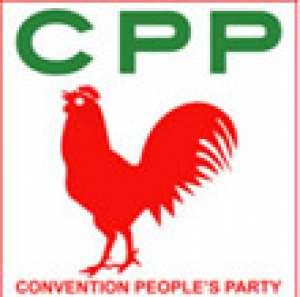
In any jurisdiction good governance calls for a constant review of policies to ensure that the objectives of all policies are being achieved.
Ghana has been taken along a path of Automatic Tarriff Adjustment Formula (ATAF) on utilities through the Public Utilities Regulatory Commission (PURC) and Full Cost Recovery via the National Petroleum Authority (NPA).
In the last 10 months this has meant an increase in Utility and Fuel prices thus:
· Electricity – 9.73% in January; 12% in June; 6.54% in September – a cumulative 31% increase in electricity.
· Water – 6.80% in January; 6.10% in Jun; 4.54% in September – a cumulative 18.5%.
· Petrol – 6% in January; 6.25% in March; 23.08% in July. A cumulative 39%
The Ghana Grid Company (GridCo), the Volta River Authority (VRA); the Electricity Company of Ghana (ECG); the Northern Electricity Distribution Company (NedCo) and the Ghana Water Company (GWC) have all argued for these increments because they say its needed to help them invest in modernizing and improving their service.
The determining factors for triggering utility price increases include:
· The Exchange Rate of the Cedi
· Inflation
· Price of Crude Oil and Natural Gas
· Chemical Cost
· Power Purchase Cost
· Demand Forecast Variation
· Energy Generation Mix
· Fuel Mix
With the NPA the criteria seems to be simply full cost recovery. Thus Oil price rises globally sees an automatic escalation in pump price of petrol in Ghana.
Utility prices have been rising for some time now even before the cumulative 31.5% and 18.5% on Electricity and Water so far this year. Many Ghanaians note however that far from improving services or even a maintained service, utility service performance has declined drastically with many days of no electricity and no water becoming the norm.
The fuel sector has seen prices tumbled dramatically. In June global oil price stood at $115/barrel, today it stands at $82/barrel, a 29% fall in 4 months.
Yaro Kasabalu of the NPA had said in July that “when there is a reduction the consumer will pay lower” so why has the Ghanaian consumer only seen a 2% drop in pump prices?
The situation where prices are escalating automatically against a declining service in the utilities sector and automatic price rises in the petroleum sector which is only largely upwards against falling global price of oil is not acceptable to the Convention People's Party (CPP) or the people of Ghana and the situation must be reviewed or the system scrapped. It is clearly not working in the interest of the people of Ghana or the nation.
American oil imports have dropped from 60% of its needs a decade ago to about 30% of its need now. There is thus too much oil increasingly on the world market leading to price falls. The big oil producers are happy to see a fall in prices going as low as $75/barrel.
The Ghanaian consumer should thus be seeing a continuing fall in petrol prices going forward and this should also impact on PURC utility rises as Crude Oil prices is also a determinant factor of utility price rises. Many anticipate that the consumer will not benefit from the global fall in oil prices .
We believe Government should be investing in the utility sectors to modernize and improve services, and to remove the burden of escalating price rises with no benefit. Its failure so far and its resorting to full cost recovery from an already impoverished population is testament of its failure to manage Ghana's vast economic wealth to the benefit of its citizens.
Nii Armah Akomfrah
CPP Director of Communication




 Akufo-Addo spotted ordering chiefs to stand for his handshake
Akufo-Addo spotted ordering chiefs to stand for his handshake
 Akufo-Addo ‘disrespects’ every chief in Ghana except Okyenhene — NDC Communicato...
Akufo-Addo ‘disrespects’ every chief in Ghana except Okyenhene — NDC Communicato...
 Supreme Court clears way for dual citizens to hold key public positions
Supreme Court clears way for dual citizens to hold key public positions
 Be transparent, don’t suppress the truth – Prof. Opoku-Agyemang to Jean Mensa
Be transparent, don’t suppress the truth – Prof. Opoku-Agyemang to Jean Mensa
 ‘I won’t tell the world I was only a driver’s mate during challenges’ – Prof Jan...
‘I won’t tell the world I was only a driver’s mate during challenges’ – Prof Jan...
 We’ll prosecute corrupt officials of Akufo-Addo’s govt – Prof Jane Naana
We’ll prosecute corrupt officials of Akufo-Addo’s govt – Prof Jane Naana
 [Full text] Acceptance speech by Prof Jane Naana Opoku-Agyemang as 2024 NDC Runn...
[Full text] Acceptance speech by Prof Jane Naana Opoku-Agyemang as 2024 NDC Runn...
 Election 2024: Don’t be complacent, we haven’t won yet – Asiedu Nketia cautions ...
Election 2024: Don’t be complacent, we haven’t won yet – Asiedu Nketia cautions ...
 Election 2024: Stop fighting over positions in Mahama’s next govt – Asiedu Nketi...
Election 2024: Stop fighting over positions in Mahama’s next govt – Asiedu Nketi...
 Prof Jane Naana Opoku-Agyemang will restore dignity of vice presidency – Fifi Kw...
Prof Jane Naana Opoku-Agyemang will restore dignity of vice presidency – Fifi Kw...
